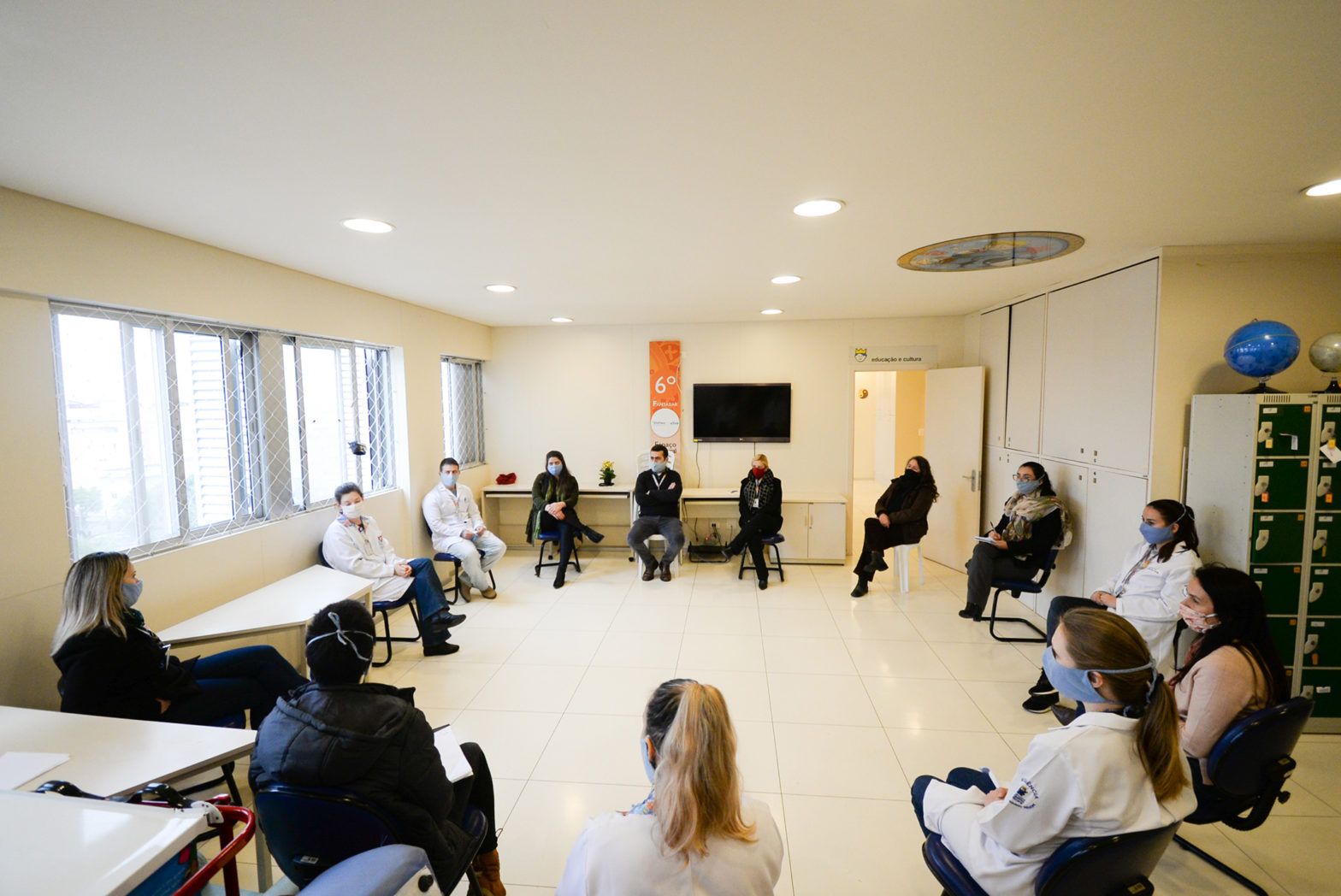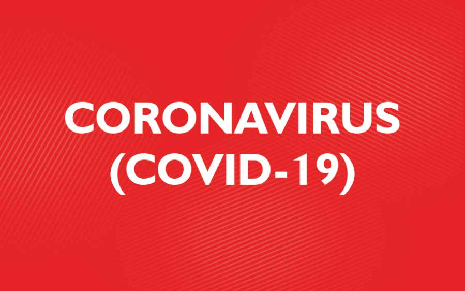Coronavirus pandemic advances in the South region of Brazil and impacts Pequeno Príncipe
In addition to the increase in cases, two hospitals in Curitiba (state of Paraná) deactivated pediatric wings and ICUs, transferring care to the institution
Brazil is a country of continental dimensions. Culture, climate, economy and many other characteristics differ from region to region, as does the spread of the coronavirus (COVID-19). In some parts of the country, the number of people infected with SARS-CoV-2 is already stabilizing and decreasing, but in the South, where the Pequeno Príncipe Hospital is located, the pandemic is on an upward curve and this directly impacts the institution. While the first ten cases of COVID-19 arrived at the Hospital throughout 52 days (between April and May), the last ten arrived in just 11 days (between June 30 and July 10), showing the acceleration of the infection curve.
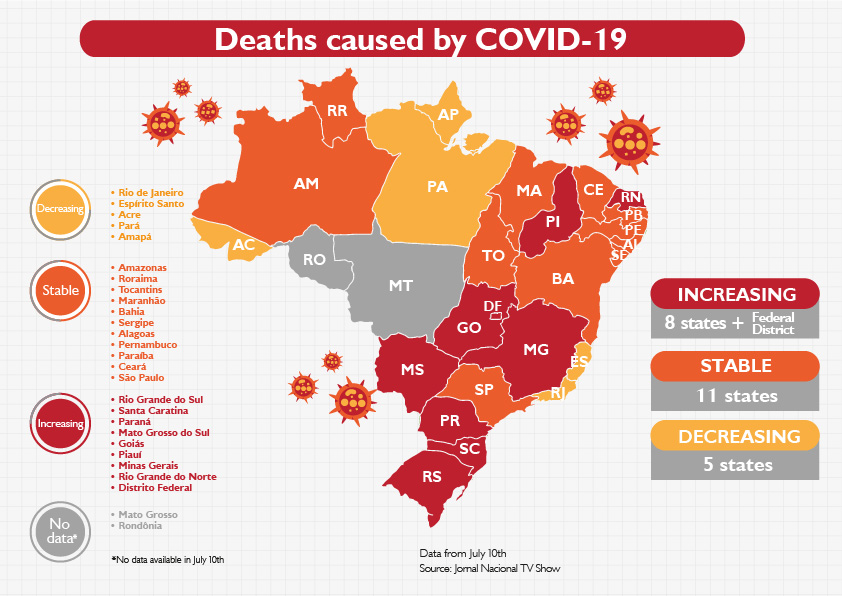
In addition to the increase in the number of cases, two hospitals in Curitiba – one public and one private – deactivated their ICUs and pediatric wings to prioritize adult care, since this is the population that has been suffering the highest incidence of coronavirus infection, requiring especially the ICUs.
“Aware of its strategic role in pediatrics, we reached a cooperation agreement with the Municipal Health Secretary and we are absorbing all patients from Hospital de Clínicas. This means that we are going to serve patients from the various specialties who were under treatment there and also the eventual cases of COVID-19,” explains the executive director of Pequeno Príncipe, Ety Cristina Forte Carneiro.
According to the technical director of the Hospital, Donizetti Dimer Giamberardino Filho, “at the present moment, Pequeno Príncipe has the capacity to meet the demand of patients from COVID-19 and other specialties”.
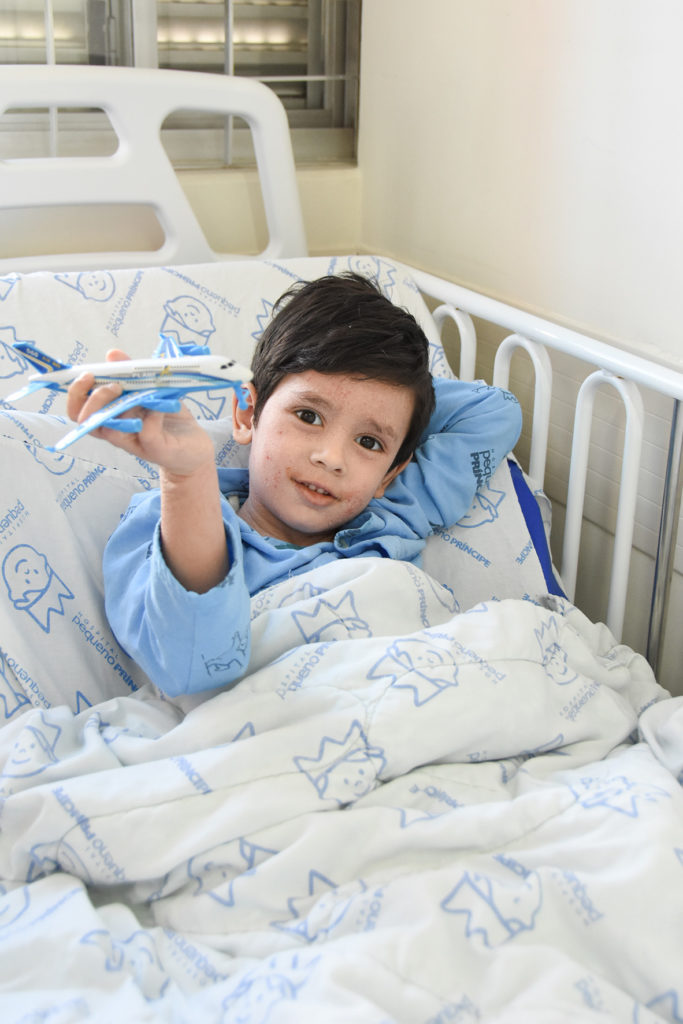
Matias Campos Theodoro, 3 years old, is one of those patients. A patient with atopic dermatitis, he needed hospitalization and the team from the Hospital de Clínicas (HC) that followed him referred to Pequeno Príncipe. “In this pandemic time, the doctor explained that the hospitalization would be here. Pequeno Príncipe’s team has been very attentive, everyone is always ready to assist us,” says the mother, Ilda Theodoro.
Essential care
Pequeno Príncipe’s infectologist, Victor Horácio de Souza Costa Júnior, makes an important warning to parents and caregivers. As with all other diseases, he emphasizes that early diagnosis makes all the difference in the conduct of treatment and in the chances of curing COVID-19 in children. “We have seen many boys and girls arrive with respiratory conditions and others in already serious situations, because the parents tried to solve the problem at home, treating these patients on their own. This masks the symptoms and can aggravate the cases,” says Costa Júnior.
Until July 10, 274 children and adolescents with suspected SARS-CoV-2 infection were treated and, of these, 31 had their diagnosis confirmed for COVID-19 (11%). Of those who had confirmed the disease, about 60%, which represents, 20 boys and girls, needed hospitalization.
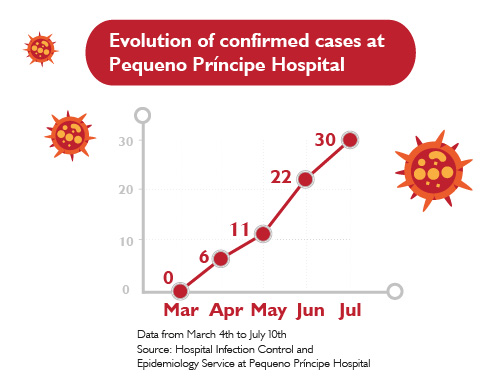
At Pequeno Príncipe Hospital, care flows were created to separate patients suspected of having COVID-19 from others, thus ensuring the safety of children and adolescents treated at the institution and their families.
Support the Pequeno Príncipe
More than ever, in this pandemic moment, Pequeno Príncipe needs the support of the whole of society to continue offering the best medicine to its small patients and their families. To find out how to support the institution’s research and healthcare projects, please contact us by email: marcelle.silva@hpp.org.br or carolina.fossati@hpp.org.br.
More
Robust program takes care of the mental health of Pequeno Príncipe’s staff
In another humanization initiative focused in the internal public, the institution listens, welcomes and guides teams on the main questions and fears related to the coronavirus
COVID-19 Report
Until 10 a.m. on July 17, Pequeno Príncipe Hospital treated 306 suspected cases of the disease, 38 of which were confirmed

